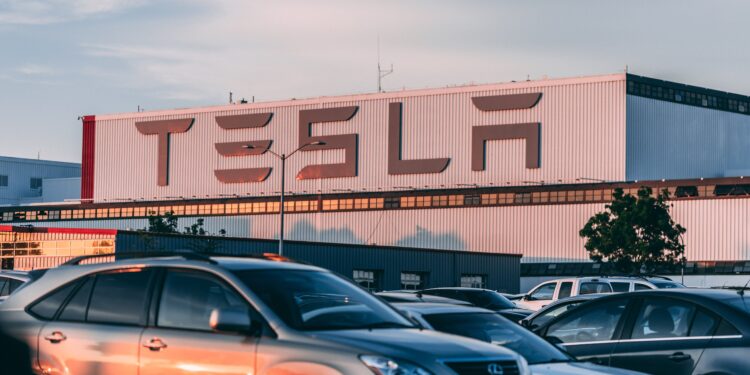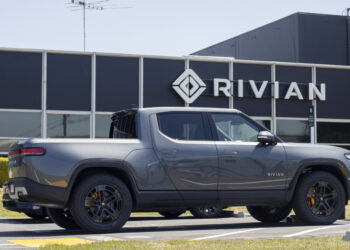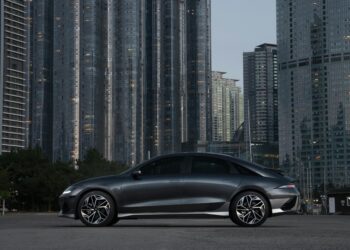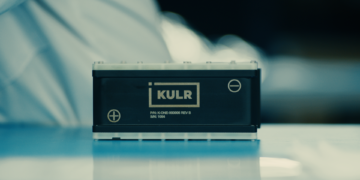European Union Revises Tariffs on Tesla and Other Chinese EV Makers, Signaling a Shift in Trade Tensions
The European Union is set to impose new tariffs on electric vehicles (EVs) imported from China, including a significant reduction in the previously proposed rate for Tesla. The decision comes as part of a broader effort by the EU to address what it perceives as unfair trade practices and subsidies in the Chinese EV sector, which pose a threat to European automotive manufacturers.
Background on the EU’s Tariff Decision
In June, the European Commission, the EU’s executive arm, announced its intent to levy higher tariffs on electric vehicles imported from China. The commission concluded that these vehicles benefit “heavily from unfair subsidies” provided by the Chinese government. These subsidies, according to the commission, allow Chinese EV manufacturers to sell their vehicles at lower prices, which undermines competition and poses a “threat of economic injury” to European EV producers.
The commission’s findings led to the introduction of provisional countervailing duties on Chinese battery electric vehicles (BEVs), aimed at leveling the playing field for European manufacturers. On Tuesday, the commission disclosed its draft decision to impose “definitive countervailing duties” on these imports, marking a significant step in the EU’s efforts to protect its automotive industry.
Impact on Tesla and Other Chinese EV Manufacturers
The EU’s decision to revise the planned tariffs has attracted significant attention, particularly in light of the reduction in duties for Tesla. The American EV giant, which manufactures a substantial number of its vehicles in China, had initially faced a proposed tariff rate of 20.8% on imports to the EU. However, after Tesla submitted a “substantiated request” to the commission, arguing that the planned tariffs should be recalculated to account for specific subsidies it receives in China, the EU decided to lower the tariff to 9%.
This reduction in tariffs is seen as a win for Tesla, as it significantly lowers the cost of importing its China-made vehicles into the European market. Following the announcement, Tesla’s stock price rose by more than 1% in U.S. morning trading, reflecting investor optimism about the company’s ability to navigate the complex regulatory landscape in Europe.
Other Chinese EV manufacturers, including BYD, Geely, and SAIC, also saw slight reductions in their tariff rates, though not as dramatic as Tesla’s. BYD, a Warren Buffett-backed company, had its tariff rate reduced from 17.4% to 17%, while Geely’s rate was lowered from 19.9% to 19.3%. SAIC, which initially faced a 37.6% tariff, will now be subject to a 36.3% duty. These adjustments indicate the EU’s willingness to consider the specific circumstances of each company when determining tariff rates.
Broader Implications for the EV Industry
While the tariff reductions for Tesla and other Chinese EV manufacturers may seem like a softening of the EU’s stance, the overall direction of EU policy remains clear. The commission has maintained that the subsidies provided by the Chinese government to its EV sector are unfair and detrimental to European industry. As such, other companies that cooperated with the EU’s investigation into these subsidies will still face significant tariffs of 21.3%, up from the previously proposed 20.8%.
For companies that did not cooperate with the EU’s investigation, the tariff rate remains high at 36.3%, only slightly reduced from the initial rate of 37.6%. This move sends a strong signal to the global automotive industry that the EU is serious about addressing what it perceives as unfair trade practices and will not hesitate to impose punitive measures on those who do not comply with its investigations.
Looking Ahead: The Future of EU-China Trade Relations
The EU’s decision to impose definitive countervailing duties on Chinese EV imports is likely to have far-reaching implications for the global automotive industry. While Tesla and a few other companies have managed to secure lower tariff rates, the broader trend of increasing trade tensions between the EU and China is unlikely to abate anytime soon.
For European automakers, the tariffs could provide a temporary reprieve from the intense competition posed by cheaper Chinese imports. However, the long-term impact will depend on how both European and Chinese manufacturers adapt to the new trade environment. As the global EV market continues to grow, the interplay between trade policies, subsidies, and competition will remain a critical factor in shaping the industry’s future.
In conclusion, the EU’s decision to lower tariffs on Tesla’s China-made EVs while maintaining a tough stance on other Chinese manufacturers underscores the complexity of global trade dynamics in the electric vehicle sector. As the EU continues to navigate these challenges, the repercussions for the global automotive market will be closely watched by industry stakeholders and policymakers alike.
You might like this article:Markets Edge Higher as AMD, Palantir, and fuboTV Make Headlines Ahead of Key Fed Meeting











